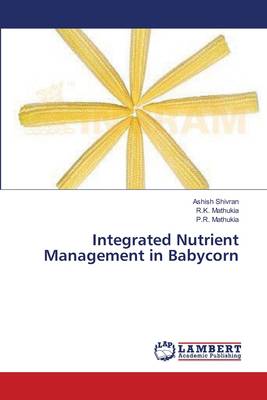
- Afhalen na 1 uur in een winkel met voorraad
- Gratis thuislevering in België vanaf € 30
- Ruim aanbod met 7 miljoen producten
- Afhalen na 1 uur in een winkel met voorraad
- Gratis thuislevering in België vanaf € 30
- Ruim aanbod met 7 miljoen producten
Zoeken
Integrated Nutrient Management in Babycorn
Ashish Shivran, R K Mathukia, P R Mathukia
Paperback | Engels
€ 61,45
+ 122 punten
Omschrijving
Specialty corns viz. sweet corn, pop corn, baby corn, high oil corn etc. assume tremendous market potential. These specialty corns with their high market value are perfectly suitable to Peri-urban agriculture. For diversification and value addition of maize as well as the growth of the food processing industry, growing maize for vegetable purpose, which is known as 'baby corn', is contemplated. Although increased level of production can be achieved by increased use of inorganic fertilizers alone but it may leads to pollution problem and deterioration in soil properties, organic carbon and soil fertility. This can only be maintained at sustainable level by the application of organic manures. Complementary application of organic and inorganic fertilizers increases nutrient synchrony and reduces losses by converting inorganic nitrogen into organic forms. It is also important not only for enhancing the efficiency of the fertilizers, but also in reducing environmental problems that may arise from their use. Looking to the above fact, the present investigation entitled "Integrated Nutrient Management in Baby Corn (Zea mays L.)" was undertaken.
Specificaties
Betrokkenen
- Auteur(s):
- Uitgeverij:
Inhoud
- Aantal bladzijden:
- 140
- Taal:
- Engels
Eigenschappen
- Productcode (EAN):
- 9783659184727
- Verschijningsdatum:
- 20/02/2014
- Uitvoering:
- Paperback
- Formaat:
- Trade paperback (VS)
- Afmetingen:
- 152 mm x 229 mm
- Gewicht:
- 213 g

Alleen bij Standaard Boekhandel
+ 122 punten op je klantenkaart van Standaard Boekhandel
Beoordelingen
We publiceren alleen reviews die voldoen aan de voorwaarden voor reviews. Bekijk onze voorwaarden voor reviews.











